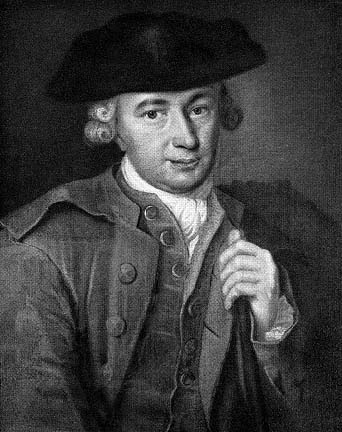Johann Georg Hamann: Citáty v angličtine
Socratic Memorabilia, J. Flaherty, trans. (Baltimore: 1967), p. 147.
Sämtliche Werken, ed. Josef Nadler (1949-1957), vol. III, p. 231.
Briefwechsel, ed. Arthur Henkel (Wiesbaden/Frankfurt: Insel Verlag, 1955-1975), vol. V, p. 177.
Therefore these words were a thorn in their eyes and a scourge on their backs.
Socratic Memorabilia, J. Flaherty, trans. (Baltimore: 1967), pp. 165-167.
Sämtliche Werken, ed. Josef Nadler (1949-1957), vol. III, p. 40.
Sämtliche Werken, ed. Josef Nadler (1949-1957), vol. III, p. 286.
“Poetry is the mother-tongue of the human race.”
Sämtliche Werken, ed. Josef Nadler (Vienna: Verlag Herder, 1949-1957), vol. II, p. 197.
“Through a vicious circle of pure reason skepsis itself becomes dogma.”
Briefwechsel, ed. Arthur Henkel (1955-1975), vol. V, p. 432.
Briefwechsel, ed. Arthur Henkel (1955-1975), vol. VI, p. 281.
Sämtliche Werken, ed. Josef Nadler (1949-1957), vol. III, p. 32.
Briefwechsel, ed. Arthur Henkel (1955-1975), vol. VII, p. 165.
Briefwechsel, ed. Arthur Henkel (1955-1975), vol. VI, p. 22.
